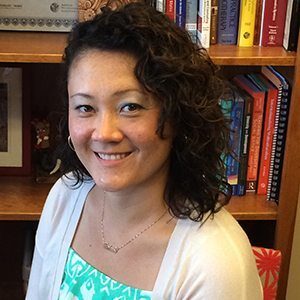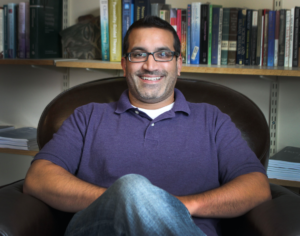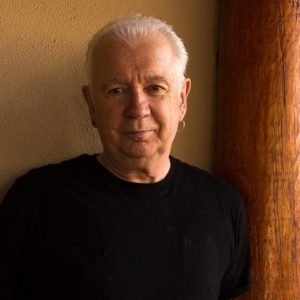May 24-27, 2021 Online
Faculty College is one of the longest-running professional development programs for UW System faculty and instructors. Its first 20 years were held in Marinette County, its second 20 years at UW-Richland Center, and now with the Covid pandemic, we are online in 2021. Next year, however, we plan to resume our in-person program in a new venue – the Osthoff Resort at Elkhart Lake.
Faculty College 2021 addresses Equity-Minded Wellness and Pedagogy, two areas of concern among OPID Advisory Council members, Teaching & Learning Centers, faculty, and instructors in the UW System.
Equity-Minded Wellness
Promoting Equity in Student Mental Health: Considerations and Strategies for the Classroom and Beyond
May 24 – 25, 2021
9:30 a.m. to Noon
Promoting an academic environment that is supportive of students’ mental health can alleviate the stress and reframe how we define student success. There are academic and classroom stressors that are particularly salient among students of color who may experience daily microaggressions, harrassment, and racial discrimination. Participants will gain a deeper understanding of the unique experiences of undergraduate and graduate students of color in the classroom, taking into account disciplinary cultures and the broader campus climate. This session will also offer practical guidance for how instructors can promote well-being in campus learning environments and support the mental health of students of color.
KEYNOTE SPEAKERS, WORKSHOP FACILITATORS, AND STEVE FUND EXPERTS
Cirleen DeBlaere, Ph.D.
Associate Professor at Georgia State University in Atlanta, Georgia and Co-Founder of the Division on Multiracial and Adopted Asian Americans within the Asian American Psychological Association

Cirleen DeBlaere, PhD is an associate professor and program coordinator of the counseling psychology doctoral program at Georgia State University. She holds degrees in psychology from Boston University (B.A.) and New York University (M.A.), and a doctorate in counseling psychology from the University of Florida. Her research focuses on the links of minority stressors (e.g., stigma, discrimination) to mental health and the role of cultural humility in psychotherapy, with a particular emphasis on the experiences of people with intersecting marginalized identities (e.g., BIPOC women). She co-founded and was the inaugural co-chair of the Division on Multiracial and Adopted Asian Americans within the Asian American Psychological Association and is a Fellow of the American Psychological Association.
Jesse Owen, Ph.D.
Professor at University of Denver, licensed private practice psychologist and lead psychologist at Lifelong Inc. in Denver, Colorado

Dr. Jesse Owen is Professor in the Department of Counseling Psychology at the University of Denver (DU), where he earned his Ph.D. He is also a licensed psychologist with a private practice in Denver and he is the lead psychologist at Lifelong Inc. In addition to these roles, he is the research director of Celesthealth and the editor of the journal Psychotherapy. His research focuses on psychotherapy processes and outcomes, multicultural orientation (MCO), as well as romantic relationships. He encourages individuals to work with him who have interest in psychotherapy processes, therapist expertise, couple therapy, and multicultural processes. Dr. Owen worked at Gannon University and University of Louisville prior to joining the faculty at DU. He earned his M.A. Degree from University of Miami and his B.S. Degree from Ball State University.
 Nation’s leading organization focused on supporting the mental health and emotional well-being of young people of color.
Nation’s leading organization focused on supporting the mental health and emotional well-being of young people of color.
Equity-Minded Pedagogy
What Does it Mean to Teach for Equity?
May 26 – 27, 2021
9:30 a.m. to Noon
College classrooms across the disciplines are analogs of democracy, the environments in which students become adult. In the process of questioning assumptions and exploring multiple perspectives, students learn what it means to stop universalizing their own experiences. A recognition that no-one holds the complete answer and that we depend on others to provide a complete understanding lies at the basis of equity work. Unless all have an equal chance to contribute, and the majority are aware of the dangers of uncritically absorbing dominant norms and ‘common sense’ ideas, we risk freezing and perpetuating elite knowledge. Ignoring historically marginalized groups keeps us trapped in a self-confirming blindness to uncomfortable realities.
Keynote Speaker & Workshop Facilitator
Dr. Stephen Brookfield
Antioch University Distinguished Scholar

This session will incorporate social media anonymous backchannels as a way of demonstrating equity minded pedagogy and will give participants the opportunity to practice the circle of voices protocol. We will end by administering the Critical Incident Questionnaire (CIQ) as a tool for equitable and ongoing formative evaluation.
Thursday, May 27
We will examine how teachers can model equity work by examining their own assumptions and practices in a critically reflective manner, particularly around racial equity. This requires teachers judging when their authority and power is being exercised abusively or in an empowering way, and considering what one’s own racial identity as a teacher means for our classroom process. Again we will incorporate social media anonymous backchannels as a way of demonstrating equity minded pedagogy and will give participants the opportunity to practice the circular response protocol.
Dr. Stephen D. Brookfield is currently Antioch University Distinguished Scholar, Adjunct Professor at Teachers College, Columbia University (New York) and Emeritus Professor at the University of St. Thomas (Minneapolis-St. Paul).
Since beginning his teaching career in 1970, Stephen Brookfield has worked in England, Canada, Australia, and the United States, teaching in a variety of college settings. He has written, co-written or edited nineteen books on adult learning, teaching, critical thinking, discussion methods, critical theory and teaching race, six of which have won the Cyril O. Houle World Award for Literature in Adult Education (in 1986, 1989, 1996, 2005, 2011 and 2012). He also won the 1986 Imogene Okes Award for Outstanding Research in Adult Education (AAACE) and the Philip E. Frandson Award for Literature in Continuing Higher Education, (2013) awarded by the University Professional Continuing Education Association, (UPCEA). His work has been translated into German, Korean, Finnish, Chinese, Japanese, Polish, Farsi, Danish and Albanian. In 1991, he was awarded an honorary doctor of letters degree from the University System of New Hampshire for his contributions to understanding adult learning. In 2001, he received the Leadership Award from the Association for Continuing Higher Education (ACHE) for "extraordinary contributions to the general field of continuing education on a national and international level."
He currently serves on the editorial boards of educational journals in Britain, Canada and Australia, as well as in the United States. During 2002, he was a Visiting Professor at Harvard University. In 2003, he was awarded an honorary doctor of letters degree from Concordia University (St. Paul). In 2008 he was awarded the Morris T. Keeton Award of the Council for Adult and Experiential Learning for "significant contributions to the field of adult and experiential learning." He was also awarded the Coin of Excellence from the General Army Staff Command College. In 2009 he was inducted into the International Adult Education Hall of Fame and in 2010 he received an honorary doctor of letters degree from Muhlenberg College.
After 10 years as a Professor of Higher and Adult Education at Columbia University in New York, he moved in 1992 to the University of St. Thomas in Minneapolis-St. Paul, Minnesota where he holds the position of Distinguished University Professor and the John Ireland Endowed Chair. The university has awarded him the Diversity Leadership Teaching & Research Award and the John Ireland Presidential Award for Outstanding Achievement as a Teacher/Scholar.
His 20th book, Creating an Anti-Racist White Identity, was just published by Stylus.
Listen to Stephen’s band, The 99ers, at the99ersband.com.
Questions:
Programmatic inquiries may be directed to:
Fay Akindes, Director of Systemwide Professional and Instructional Development, UW System, fakindes@uwsa.edu, (608) 263-2684.
For technical support contact:
Diane Waters, Program Associate, Office of Academic Programs & Faculty Advancement, UW System, apfa@uwsa.edu, (608) 262-8778.

